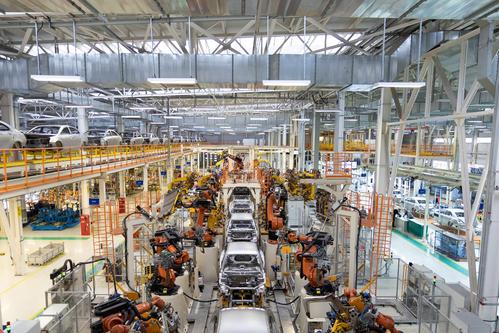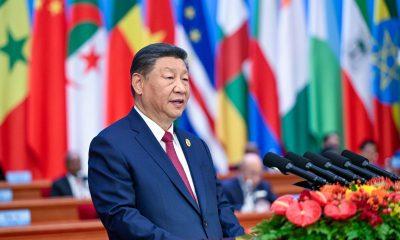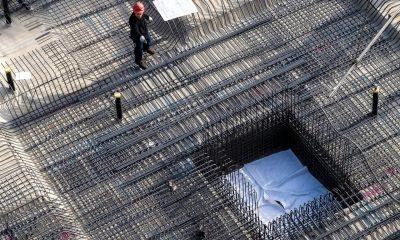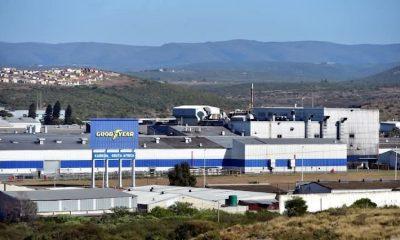Business
South African Automotive Sector Faces Perfect Storm Amid Wage Demands and Global Trade Wars

South Africa’s automotive sector—responsible for over 100,000 jobs and billions in exports—is navigating one of its most turbulent periods in recent memory. With steep wage demands on the table and growing international trade tensions, the industry is caught in a tightening squeeze that could ripple across the broader economy.
Wage Demands Signal Brewing Labour Showdown
In April 2025, worker unions representing employees in the automotive supply chain—including petrol stations, car dealerships, tyre shops, component manufacturers, and vehicle body builders—entered negotiations with employers to demand a 10% wage increase across the board.
These unions, led by the National Union of Metalworkers of South Africa (Numsa), have rejected inflation-based offers, calling them “unrealistic” in light of the escalating cost of living. South African households are already grappling with steep hikes in electricity prices, food inflation consistently outpacing headline inflation, and a generally tough economic climate.
“Workers have been suffering, and the wages have not improved much over the years,” said Numsa in a statement. “An inflation-based increase is unrealistic because our members simply cannot afford to survive on it.”
On top of the pay increase, unions are also calling for the narrowing of wage gaps, better sectoral allowances, and full medical aid coverage.
The looming threat of strike action adds pressure to an already embattled industry.
The AGOA Wildcard and Tariff Troubles
The wage standoff comes at a time when the automotive industry is under threat from shifting international trade dynamics—particularly from the United States.
Since taking office in January, President Donald Trump has reignited global trade tensions. In early April, he imposed a blanket 10% tariff on all imports and a 25% tariff specifically targeting vehicle imports. These measures have major implications for South Africa, which exported around 25,553 vehicles to the US in 2024—accounting for R27 billion in trade.
But it gets worse.
South Africa’s participation in the African Growth and Opportunity Act (AGOA)—which offers duty-free access to US markets—now hangs in the balance. Analysts believe expulsion from AGOA is likely, and the Department of Trade and Industry has already admitted that any benefits are effectively cancelled out by the new tariffs.
AGOA played a critical role in South Africa’s auto exports, with the sector accounting for R33.6 billion—or 47%—of the total R71.5 billion exported under AGOA in 2024.
“The sector’s access to international markets is under siege,” warned the Automotive Business Council, Naamsa. “We urge the government to engage the US administration to protect AGOA access and our local industry.”
AMSA Fallout and Fragile Foundations
On the local front, the industry’s vulnerability has been amplified by supply chain disruptions—most notably the crisis at ArcelorMittal South Africa (AMSA).
In February, AMSA announced plans to shutter its longs steel business, a key supplier to auto manufacturers. The closure would have triggered widespread job losses and supply shortages. A R1.7 billion lifeline from the Industrial Development Corporation (IDC) postponed this closure until August 2025, but uncertainty remains.
With persistently high energy costs, rail and port constraints, and policy ambiguity, AMSA’s struggles mirror the broader pressures facing South African manufacturers.
Can the Sector Withstand the Storm?
South Africa exported nearly 391,000 vehicles in 2024, alongside billions of rands’ worth of components—making the automotive sector a pillar of the industrial economy. But the convergence of labour unrest, global tariffs, steel supply issues, and potential AGOA exclusion puts this cornerstone industry in jeopardy.
The stakes are high. Jobs, export earnings, and investor confidence all hang in the balance.
If government and industry leaders fail to respond decisively—through strategic negotiations, trade diplomacy, and industrial support—South Africa risks watching one of its most important industries stall on the global highway.
{Source: BusinessTech}
Follow Joburg ETC on Facebook, Twitter , TikTok and Instagram
For more News in Johannesburg, visit joburgetc.com



























